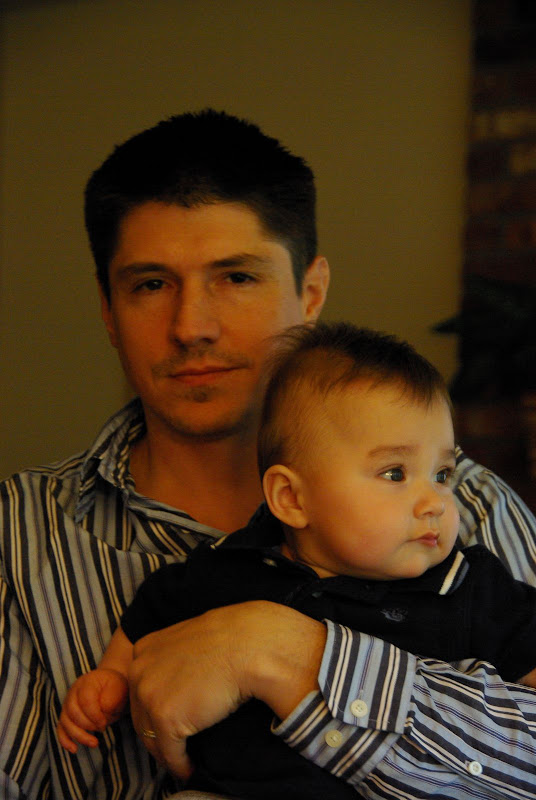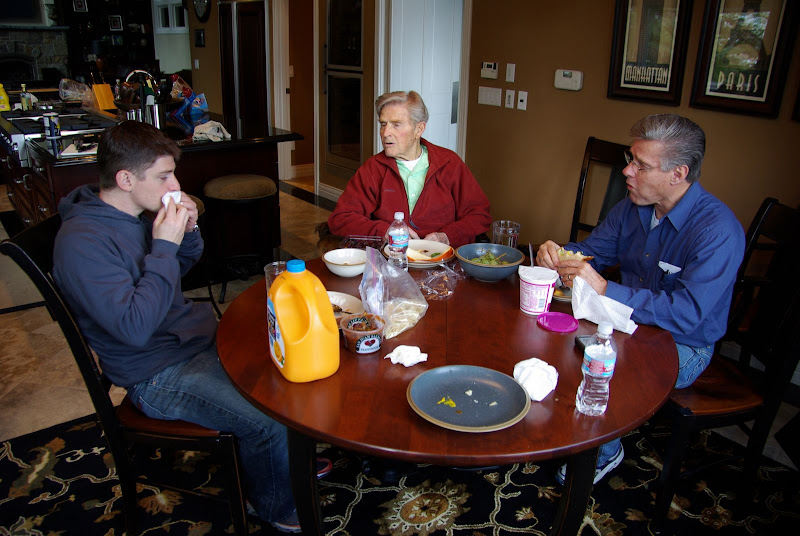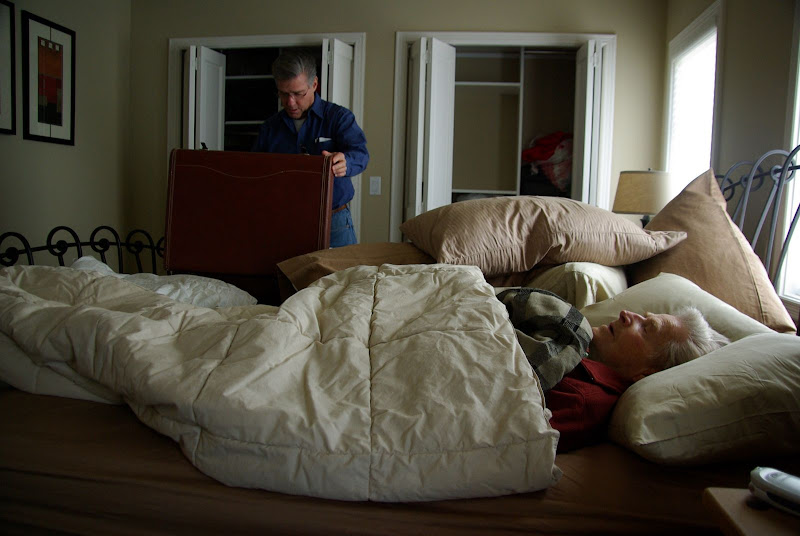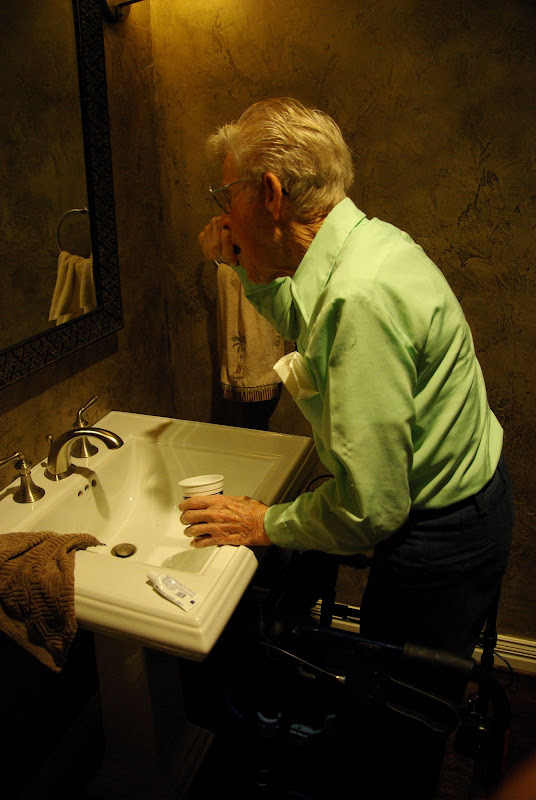I attended part of a conference today on peacemaking in Palestine and Israel. The conference was held at University Presbyterian Church, in downtown Seattle, and was called "Standing with the Living Stones of Palestine and Israel." It was ostensibly about supporting Palestinian Christians in the face of an increasingly hostile world, though most of it (not surprisingly) turned out to be about pressuring Israel to end the occupation of the West Bank.
That's certainly a reasonable goal. As I've written elsewhere, it's indisputable that Israel has done a piss-poor job with the West Bank. They haven't had the political courage to make up their mind about what to do with the territories captures in 1967, and as a result, they've landed themselves in a strategic nightmare. Whether it's through their roadblocks, settlements, or just plain incompetent bureaucrats, the Israeli government continues to make Palestinian daily life miserable, and all but encourages the sort of stupid, evil, suicidal violence that makes Israeli daily life tenuous.
And there was truly a great deal to admire about the general message of the conference. Sami Awad, the director of the Holy Land Trust, spoke forcefully about Christ's words to "love your enemies." "This doesn't read like a suggestion," he said. "This is a command." He went on to talk about peacemaking being the way of the courageous. "It takes far more courage to stand in front of a tank and not move, than to shoot at it and run away." It was an impressive and challenging message. Putting aside for the moment the question of whether a Christian must be a pacifist, I certainly agree that violence (whether Israeli or Palestinian) is likely to solve little in this current conflict, and that emphasis must therefore be placed on nonviolent rather than coercive solutions.
At the same time, I'm not sure that I entirely agree with the typical "nonviolent" analysis of the situation. Certainly they are largely correct in pointing out the injustice of the Israeli government's actions in settling on Palestinian land, or by making it difficult for Arabs to get building permits, or any one of dozens of other issues. But not every aspect of the Israeli government's policies can be so easily categorized.
Here's an example of what I mean. One of the conference handouts was from ICAHD, the Israeli Committee Against House Demolitions. It consisted of a side-by-side analysis of the "Israeli/Zionist/Security" and "Peace and Human Rights" framings of the situation. The "Peace and Human Rights" column included these statements:
"Israel is not fighting for its existence. The Palestinians recognize Israeli sovereignty over 78% of the country."
"Palestinian violence is a symptom of oppression."
On the one hand, it certainly is true that absent Iran developing a nuclear weapon, Israel's existence is not exactly in question at the moment; and nobody can dispute that the more Israel cracks down, the more Palestinians want to engage in violence. But on the other, you can't deny that much, if not most, of the Arab world would even now prefer Israel's defeat, if not outright destruction. Israel has fought three existential wars in her 60 year history. Hamas' charter still calls for Israel's destruction. In addition, especially since the second Intifada, suicide bombings have given Israel a great deal of cause to crack down in the territories. This graph right here, for instance, taken from Ha'Aretz, shows the ratio of successful to unsuccessful attacks.

You can argue that Israel's harsh tactics are immoral or unjust or unhelpful in the long-term; but it's difficult to dispute that they've contributed to the growth of the yellow bars and the decrease in the size of the red ones.
But although I don't agree entirely with the narrative offered by the nonviolence movement, I don't fully agree with any other narrative I've heard either. I think the overall situation, when it comes right down to it, is too complex to be easily captured in any "narrative". You can only talk about individual situations and actions, and try to place the actions of each side in as broad a context as possible, before offering a judgment about the morality of a given situation or action.
This is why I'm not quite comfortable with the peacemaking movement as currently constituted: it fails to recognize that the actions of the poor and weak can be just as evil as the actions of the strong and victorious. I admire anyone who stands in front of tanks and denounces the IDF, but I would trust their analysis of the situation more if I knew that they also stood in front of rocket launching crews and denounced Hamas. Perhaps they do – but I've never seen it advertised.
I do think that it's helpful to outline the different narratives the warring parties tell themselves. But the most helpful approach is to assess the relative truth of the different narratives as they apply to individual situations, and to correct them impartially when they don't appear to be accurate. As a famous Jew once said, "You shall know the truth, and the truth shall set you free." A careful and objective analysis doesn't make for good soundbites, but it has other qualities which perhaps make up for this.
In this light, to my mind the most interesting speaker at the conference was Hank Landau, the now-retired founder of Landau Associates. He seemed to have very little interest in ideology or who was right and who was wrong. He just wanted people (whether Israeli or Palestinian) to have clean water, and he was willing to work with anybody who could help that happen. His talk on the geography and climate of Israel and Palestine was refreshing: just the facts, only as much judgment as was minimally required, and for that reason, oddly and surprisingly hopeful.













